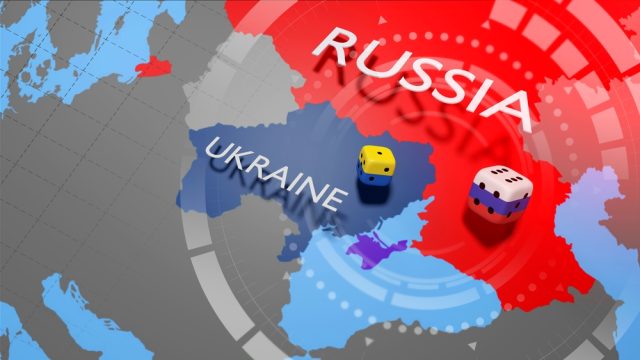
Last Saturday, the US House of Representatives approved a military aid package for foreign allies. Some $95 billion, to be divided among the three major international crises threatening the Western world and our democracies: $8 billion for Taiwan and allies in Southeast Asia; $26 billion for Israel and new humanitarian aid for civilians in Gaza. But the biggest expenditure is for the conflict in Ukraine: up to $60 billion for Kiev, of which $10 billion is on loan until 2026. Final approval is awaited from the Senate, which is unlikely to face any further complications. The ‘yes’ vote in the House of Representatives was by a considerable margin: 311 in favour, 112 against. A rather significant sign: according to Star sources, it will take less than a week for the new weapons to be sent to Ukraine, as unofficial rumours suggest that preparations for the deliveries had already begun before the House vote. A warning, then, to the whole of Europe, which should not hesitate to support Ukraine again, in order to reach – hopefully as soon as possible – a position where the West can begin a dialogue with the Russian aggressor from a position of superiority.
Trump’s yes is a signal for the whole Europe
The signal came in particular from the Republican faction. Indeed, sending new funds to Ukraine would not have been possible without the unofficial support of Donald Trump. The former president seems to have abandoned the isolationist line of recent months in favour of greater openness to the Ukrainian cause: “As everyone agrees,” the tycoon wrote on Truth last Thursday, “Ukraine’s survival and strength should be far more important to Europe than to us, but they are to us too. An openness that was also demonstrated by the fact that the real architect of the yes vote in Congress was Mike Johnson, the speaker of the House of Representatives and a Trump loyalist. And by the fact that there continues to be a mutually supportive relationship between the two: “He’s doing a really good job under very difficult circumstances,” Trump said in recent days, referring specifically to Johnson. It is probably too early to talk about full Republican support for Ukraine, but what is certain is that the openness of Trump and prominent figures in the American conservative world is a signal to the whole of Europe: we must continue to support Ukraine so that it can arrive at the end of the war in a position of parity or superiority with Russia.
Diplomacy is not bending to the enemy
This is perhaps the basis of diplomacy, which should not be reduced to simply bowing to the enemy and agreeing to his every demand. Supporting Ukraine is crucial not only to prevent an escalation of the war and the possible entry of Moscow’s troops into the heart of the European continent. More than that, supporting Ukraine will be crucial for post-conflict arrangements. This is the reason for Trump’s openness to Kiev, in the wake of what he has already done to resolve equally important crises, such as the North Korean crisis in 2017 and the Iranian crisis in 2020. And also in the wake of the lessons of Ronald Reagan, who won the Cold War against the Soviet Union with diplomacy, dialogue and a firm hand.
Europe overcomes indecision
The European Union must now respond strongly to the US decision. It must respond positively, overcoming the indecision and protracted discussions that are slowing down the decision-making process on sending new arms and, at the same time, could encourage Russian President Vladimir Putin to continue his pressure on the territories involved in the conflict: in fact, it seems that Russia is preparing for a new offensive in the summer and Ukraine cannot be caught unprepared. Any hesitation on the part of the European and US ruling classes means losses in terms of lives, supplies and parts of territory. The strategy of supply is therefore the best Western weapon against the Russian advance, against those who continue to relentlessly advocate the path of pacifism, which would instead mean surrender and accepting major concessions to Russia. And Europe cannot afford that.



 Subscribe
Subscribe